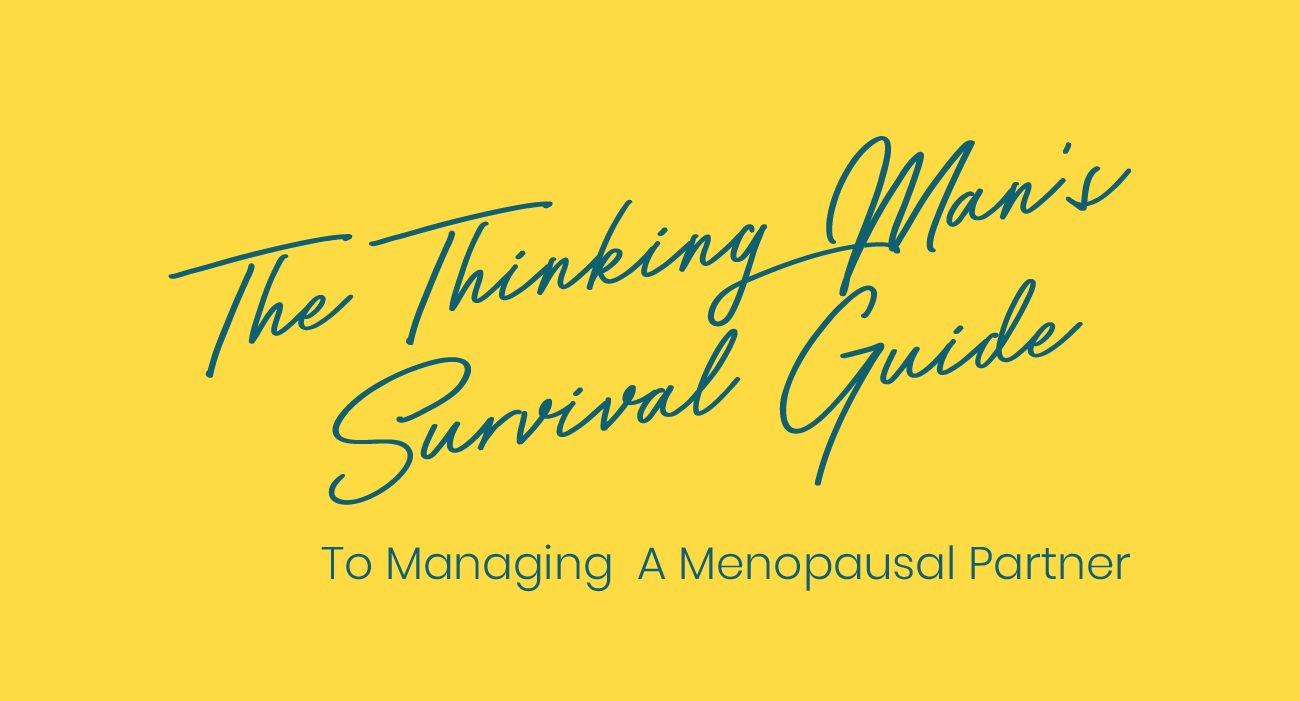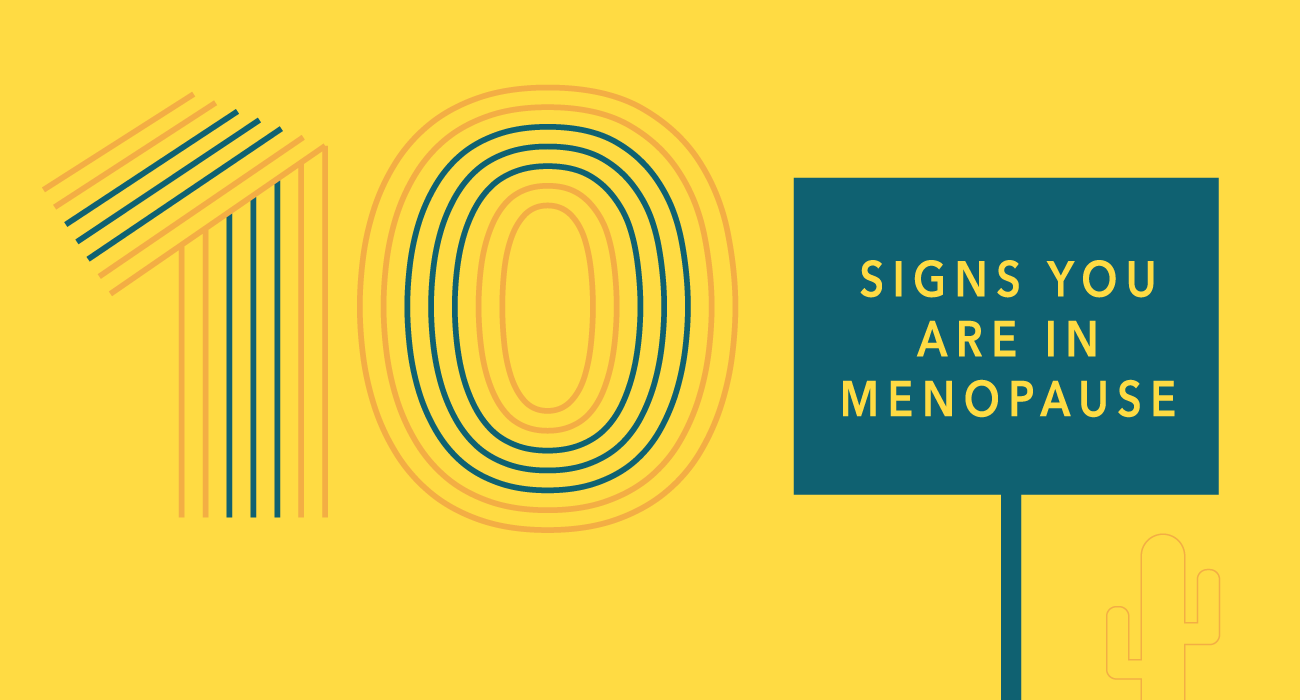
The Thinking Man’s Survival Guide
Dear men of the world, we know you love us, but it really is time to brush up on your menopause IQ! READ ON...
Know the basics
Menopause officially occurs when woman stop having menstrual cycles altogether. However, the process of getting to that point can take a long time as women’s hormones start to dwindle along with the number of eggs we have as we age. Some women sail through menopause with barely a symptom, but most women experience varying degrees of mood swings, night sweats, weight gain, depression, hot flushes, disrupted sleep and it can get really awful.
Gear up for the long haul
Menopause can be a 15+ year journey that doesn’t just happen overnight and it certainly does not go away overnight. Menopause kicks off with perimenopause which can start in her late 30’s or early to mid-40’s and menopause officially ends when she has been period-free for over a year or early 50’s. Some symptoms stick around and others go away, but importantly having a shared knowledge and understanding of symptoms can help the woman in your life’s relationships and quality of life.
Menopause is on Mute
There is a lot of stigma surrounding menopause. While you may be feeling in the dark about the changes she is experiencing, chances are she is too. Women often feel isolated as they are not feeling themselves and are not going to talk about it because it is considered taboo. (Getting old, past it, memory lost etc.) This is difficult at work and at home so understand what she might be going through and be there with a hug, with a few word of support or her favourite movies or some chocolate or even just an understanding ear can make all the difference.
M is for Menopause and Mood
Menopause can affect mood, especially in perimeno-pause. Some women experience, mood swings, anxiety and depression. She may not even know what’s going on especially if she has never dealt with mental health challenges before. If you are noticing consistent changes in her behaviour like continued feelings of sadness or irritability or loss of interest in her favourite activities, talk to her gently about it and encourage her to get the help she needs.

Good Sleep and Sanity
85% of women report hot flushes during menopause which is a sudden heat that spreads through your neck, face and chest. Night sweats are hot flushes that occur at nigh. Because of fluctuations in estrogen levels, the mechanisms controlling body temperature are affected so you can suddenly feel warm and sweaty. This all contributes to making sleep elusive and her days much tougher.
Help her by unwinding before bed, run a bath, buy a bedroom fan and risk your life by confiscating her phone from the bed.
Don’t take it personally and do share your feelings
Men please understand that your partner is distressed over her body, how she feels, her lack of libido or the prevailing latest symptoms. You may have comments directed at you but it’s hormones talking. Most men report that menopause impacts them negatively and at least half report it negatively impacts their relationships. Your relationship is unlikely to be falling apart and having honest discussions and assuring her of your support makes a big difference. Learn more about what she is going through, help minimise her discomfort and stay optimistic as there are solutions.
It’s not just something you “go through”
Don’t ever say “it cannot be that bad”, it really can be that bad. Without the protective effects of hormones such as estrogen, women face real danger after menopause with nearly a third of women developing cardiovascular disease.
Women are also 4 times as likely as men to develop osteoporosis, and face an increased risk of metabolic syndrome which includes high blood pressure, high blood sugar, excess abdominal fat, and abnormal cholesterol levels.
Hear her when she is experiencing symptoms. Know when she is withdrawing from usual activities and seems extremely miserable. Urge her to see a doctor and get advice from professionals.
There are Treatments and solutions to Help
Symptoms of menopause can range from frustrating to life threatening. Thankfully there are lots of options available to help the woman in your life find relief. Medical professionals can prescribe hormone therapy and can also advise on great non-hormonal options to address menopause symptoms.
It is also important to remember that there are as many menopause experiences as there are women themselves. It is essential that all support for women is approached based on her own indivdualised needs.
What a woman’s body is taking her through is important information. It’s an important thing to take up space in a society because half of us are going through this. - Michelle Obama





